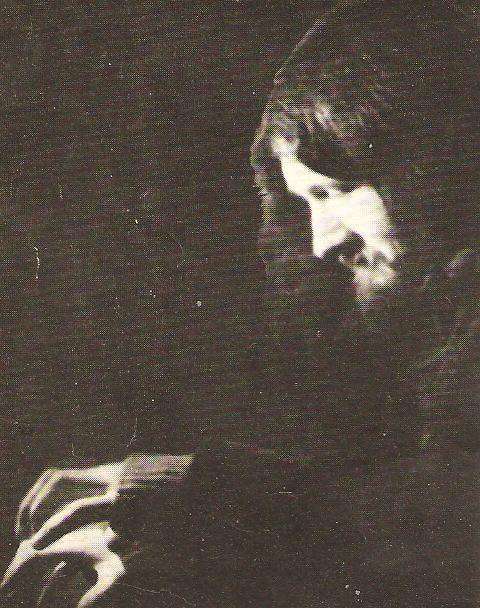
David Panton
David Panton's One Music
Album UK 2011 on Nondo label
Jazz (Avant-garde Jazz)
NONDO HT LP 1370 ONE MUSIC David [Dave] Panton - alto saxophone (1,2), percussion (3), piano frame (2), voice (2) Simon Hakiel - piano frame (3) Jolyon Laycock - ring modulation (1) Additional voices (2) Derek[ Dez] Allenby, Adrian & Martin Welham Published by Compatible Recording & Publishing Ltd/D & ED Panton (Music) Recorded at Birmingham Arts Lab, Tower Street, 30 September 1971 by Jolyon Laycock (1); Birmingham Arts Lab July 1970 and East Dulwich, London, August 1970 by David Panton (1,2); Moseley, Birmingham 15 October 1971 by Simon Hakiel (3) New Liner Notes for CD/Download reissue 2011 This was the first of the NONDO series of recordings produced by Panton in the 1970s. It reflects some of the methods and styles he used: juxtapositions of free improvisation, composition, use of musicians and non-musicians, sometimes highly organised, sometimes reliant on chance encounters and serendipity. The ONE MUSIC concept was about using any resources/sources without discrimination, whether in terms of style, genre, methodology, instrumentation, personnel, musical/non-musical and so on, inclusively - the diametric opposite of the exclusiveness of the non-idiomatic approach of Derek Bailey, or the almost pointillist approach of John Stevens. Wind 67 was derived from a composition for classical chamber group. It consists of eleven written sections played fairly loosely through ring-modulation manipulated by the then Birmingham Arts Lab music organiser Jolyon Laycock. At the mastering stage there was a mismatch between the original tape format (quarter-track) and the studios half-track machine which allowed a reversed half-speed recording to be audible under sections 10 and 11. Rather than waste time and money locating a compatible machine, and in the spirit of ‘chance and serendipity’, it was left as it was. The ring-modulation too was a matter of chance: Jolyon had the multi-frequency equipment set up for his own on-going sound event, but because there was no time before the performance to properly co-ordinate the two sound sources there was a lot of extraneous noise between tracks which was also left as it was. Twenty-first century technology, however, has enabled this to be cleaned up, and the acquisition of a suitably formatted tape machine has allowed sections 10 and 11 to be heard as originally performed - these sections as on the original disc can be heard as an extra track. Symphony Four (In Tor Men) was also something of an after-thought in the same vein. A not very inspiring performance of this piece had been given on the same date as Wind 67 and followed immediately on the tape, still with the reversed half-speed recording audible. It was decided on the spur of the moment to play this at the maximum speed possible for the remaining four minutes that could be cut on side one of the disc. The piece was for spoken voices with composed and improvised music - the pre-recorded voices being those of the contemporary folk group FOREST who were then based in London. The idea was that in a future full performance this would form the final section, giving the impression of a symphony orchestra. Monotony with Variations is entirely improvised with Simon Hakiel, then a psychology student and non-musician, on piano frame. In this instance the juxtaposition of a ‘normal’ performance set against a high-speed recording of a previous performance was quite deliberate. Sections 10 & 11 (Wind 67) is as was originally released on disc (see above). (c) panton music 2011
Musicians
 | David Panton as, p, GB album by |
Album Tracks 

| No | Title | Artist | Composer | Duration | |
|---|---|---|---|---|---|
| 1 | Wind 67 | David Panton | 15:19 | ||
| 2 | Symphony Four (In Tor Men) | David Panton | 3:32 | ||
| 3 | Monotony With Variations | David Panton | 22:06 | ||
| 4 | Sections 10 & 12 (Wind 67) | David Panton | 5:16 |
30sec audio samples provided by ![]()
